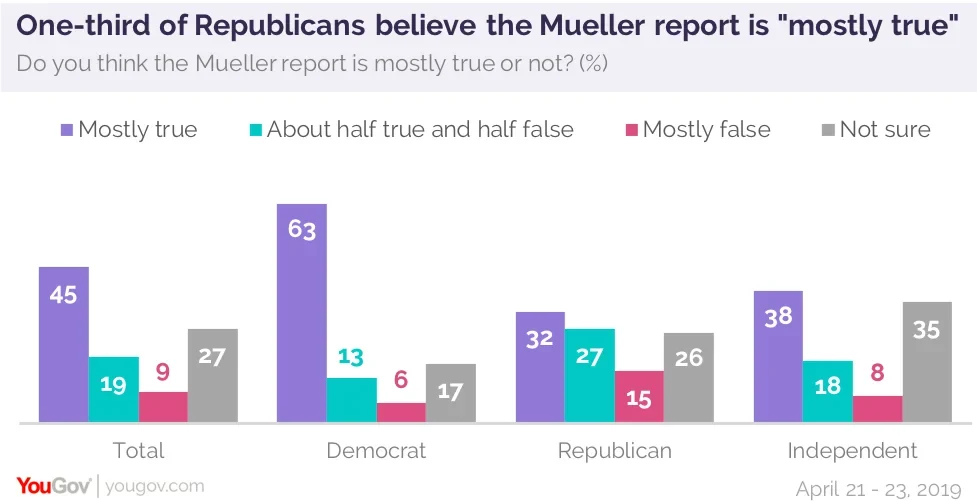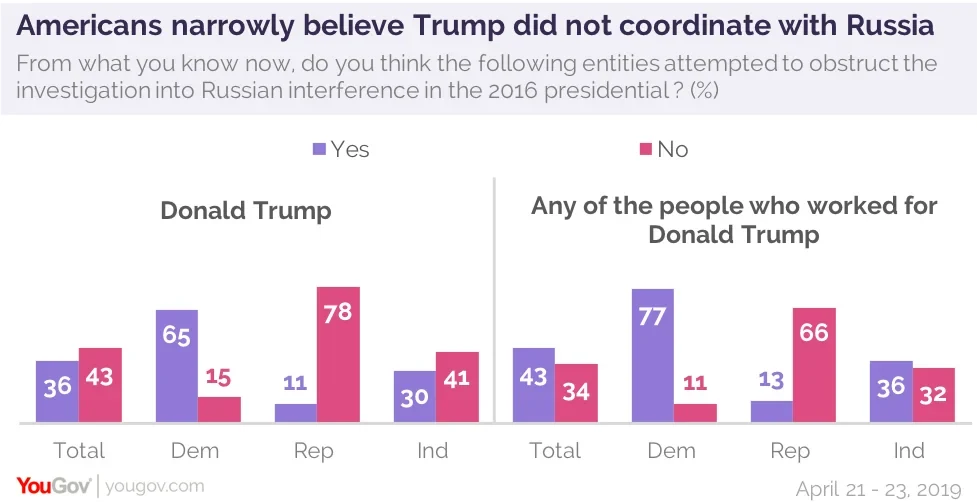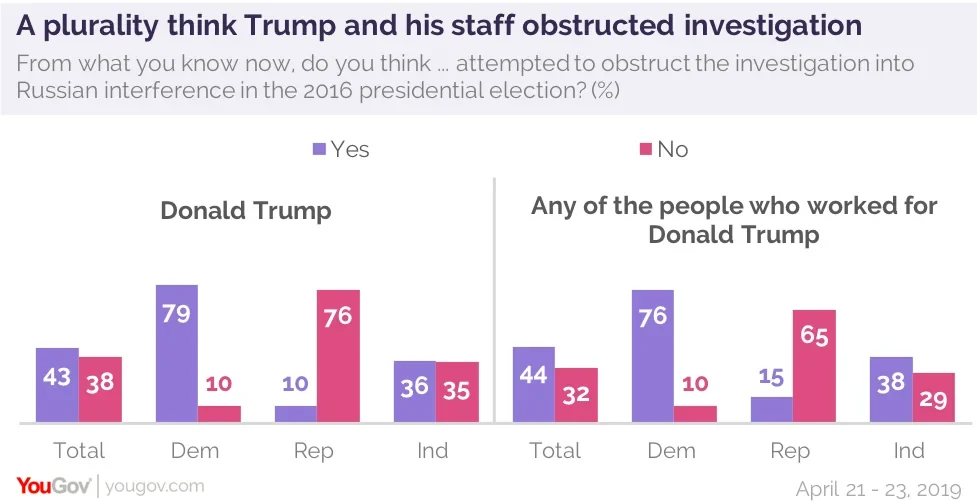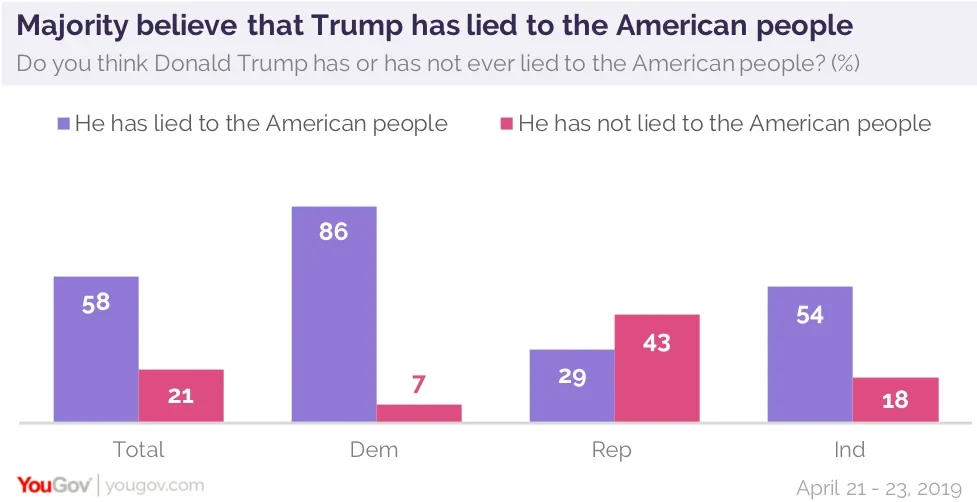A plurality of Democrats, Republicans, and Independents say the Mueller report is “mostly true”
Special Counsel Robert Mueller’s report on Russian interference in the 2016 election continues to divide America. Most Republicans accept the President’s criticisms of the investigation. In the latest Economist/YouGov Poll, three in four Republicans continue to regard the investigation as a witch hunt, and one in three believe that the contents of the report are “mostly true.”

One in four Americans say they can’t judge the veracity of the report. That’s even more likely among those who have read none of the report themselves. Positive feelings about the report are more common among the very small minority of the public who claim they have read it all.
Democrats and Republicans came away from the investigation with different views about what happened. Overall, Americans narrowly believe the President did not attempt to coordinate with Russia to benefit his presidential campaign, but a plurality also believes that campaign staffers did. Republicans reject the idea that President Trump and his campaign staff coordinated with Russia; Democrats believe both happened.

The question of whether there were attempts to obstruct the investigation is another matter, however. Pluralities accept that both the President and members of his staff attempted to obstruct the Mueller investigation, the President by a small margin and his staff by a slightly larger one. On both questions, Republicans reject the charge, although a somewhat smaller majority of Republicans is sure obstruction didn’t happen than agree there is no collusion.

For most Republicans, Russia did nothing that warranted an investigation. Seven in ten (71%)Republicans do not believe that Russia hacked Democratic emails to help the Trump campaign, and 71% deny that Russia spread fake news in order to do the same. Majorities of the public as a whole believe both of those claims are true, and the Democratic majorities believing Russia intervened are just about as large as GOP disbelief.
There is a small percentage of Republicans – about a third – who report negative assessments of the President’s truthfulness. Among the entire public, 58% believe President Trump has lied to the American people at least once. Half that proportion of Republicans (29%) agree.

Republicans who don’t describe themselves as conservative are nearly twice as likely as conservative Republicans to believe the President has lied. But most of those Republicans who say he has lied believe is doing it at about the same frequency as other presidents have. And only 22% say that lying bothers them “a lot.” Three-quarters of non-Republicans say it bothers them a lot.
However, most Republicans believe the President can misspeak. By 56% to 44%, Republicans agree with the even larger overall majority that President Trump often speaks without thinking very much. And when he misspeaks (which nearly two-thirds of Republicans agree he sometimes has), by two to one they attribute it to an accident of speech. Three-quarters of the public overall say President Trump sometimes misspeaks, and by almost six to one they say it is on purpose.
Press Secretary Sarah Huckabee Sanders admitted misleading the press in her interviews with the Mueller investigation. Nearly half the public believes she has lied, and most of those think she has lied more than other press secretaries have and are bothered by it. But Republicans disagree.
What should happen now? Majorities of Americans want the Attorney-General to give the unredacted Mueller Report to Congress and want to hear Congressional testimony from Mueller himself. By 44% to 35%, the public would have Congress hold hearings on possible obstruction of justice. Republicans take a very different view of the latter. Only 18% of them would support hearings. However, a third of Republicans favor Attorney General Barr giving Congress the unredacted report and support having Mueller testify.
See full toplines and tables results here.
Image: Getty






